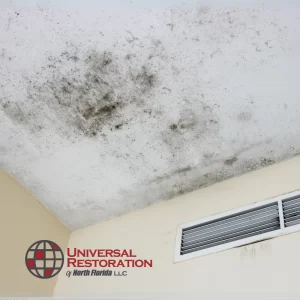Homeowners insurance is a vital safety net for unexpected damage to your home. However, it’s important to know that most insurance policies do not cover normal wear and tear, including mold and algae growth. Understanding mold exclusions in your insurance policy and the importance of mold inspections can save you from hefty repair bills.
First, let’s break down what mold exclusions mean. Simply put, mold exclusions are clauses in your insurance policy that state the insurer will not cover damage caused by mold. Most policies view mold as a preventable issue that results from maintenance neglect rather than an unexpected event. This means if greater damage to your home occurs because of regular wear and tear, your insurance won’t cover the repairs.
Mold can cause severe damage to your home and health. It thrives in damp, humid conditions and can spread quickly, damaging walls, ceilings,  and floors. It can also lead to health issues such as allergies and respiratory problems. Regular mold inspections are essential to detect and address mold problems early.
and floors. It can also lead to health issues such as allergies and respiratory problems. Regular mold inspections are essential to detect and address mold problems early.
By catching mold early, you can prevent it from spreading and causing more damage. Inspections help identify potential problem areas where mold is likely to grow, such as basements, bathrooms, and kitchens. This can save you money in the long run by avoiding extensive damage that your insurance won’t cover.
What you can do to protect your home from mold?
- Maintain proper ventilation in areas prone to moisture, such as bathrooms and kitchens. Use exhaust fans to reduce humidity levels.
- Fix any leaks or water damage promptly. Mold thrives in moist environments, so addressing water issues quickly is vital.
- Regularly clean areas where mold is likely to grow. Use mold-resistant products, such as paint and drywall, in areas prone to moisture. These preventive measures can significantly reduce the risk of mold growth in your home.
If you suspect mold in your home, don’t wait. Contact professionals such as Universal Restoration for a mold inspection. Our experts will thoroughly examine your home for signs of mold and identify areas where mold is likely to grow. We can take steps to remediate the problem early before they become significant issues for you and your family later. We can also provide recommendations on how to prevent future mold growth.
Understanding your insurance policy and the exclusions it contains is crucial. Knowing that mold damage due to regular wear and tear isn’t covered by insurance emphasizes the importance of eradicating mold quickly.
If you have questions about what your policy covers, contact your insurance agent. They can provide detailed information about your coverage and any exclusions that may apply. And if you think you might benefit from a mold inspection, reach out to professionals like Universal Restoration. We can help ensure your home remains a safe and healthy place for you and your family.
